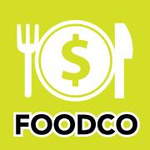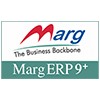Description

FoodCo

Marg ERP9+ Restaurant Software
Comprehensive Overview: FoodCo vs Marg ERP9+ Restaurant Software
Comprehensive Overview of FoodCo and Marg ERP9+ Restaurant Software
a) Primary Functions and Target Markets
i. FoodCo
Primary Functions:
- FoodCo is designed to offer a comprehensive point-of-sale (POS) solution tailored for the food and beverage industry.
- It typically includes features like order management, inventory control, customer relationship management (CRM), billing, kitchen order management, and employee management.
- Additional features may include analytics and reporting for better decision-making and real-time insight into restaurant operations.
Target Markets:
- FoodCo targets small to medium-sized food service businesses, including restaurants, cafes, and fast-food outlets.
- It appeals to businesses looking for a robust POS system that can streamline operations and enhance customer experience.
ii. Marg ERP9+ Restaurant Software
Primary Functions:
- Marg ERP9+ offers a more integrated enterprise resource planning (ERP) solution, which incorporates POS functionalities.
- It includes features such as inventory and supply chain management, accounting and financial operations, menu management, CRM, and billing processes.
- Marg ERP9+ also provides comprehensive MIS (Management Information Systems) reports, which aid in strategic decision-making.
Target Markets:
- Marg ERP9+ targets larger, more complex food service operations and chain restaurants that require integrated ERP functionality.
- It is suitable for businesses seeking a solution to manage extensive operations with multiple touchpoints and more sophisticated accounting and reporting needs.
b) Comparison in Terms of Market Share and User Base
- FoodCo typically competes more in specific niches or regions and may not have the same level of penetration in the market as some of the more well-known global brands.
- Marg ERP9+, being an ERP solution, often competes in the broader ERP market and has a stronger presence in regions like India where the brand is well-established.
In terms of market share and user base, Marg ERP9+ is likely to have a larger footprint due to its dual focus on both POS and ERP functionalities, appealing to a broader range of business sizes and types.
c) Key Differentiating Factors
-
Functionality Focus: FoodCo is predominantly a POS-focused solution, ideal for businesses that want efficient front-of-house operations, while Marg ERP9+ is more comprehensive in its offerings, blending POS with deeper ERP capabilities, making it suited for businesses with complex back-end processes.
-
Scalability: Marg ERP9+ offers more robust tools for scaling up, which are advantageous for growing businesses that may develop into multi-location operations.
-
Customization and Integration: Both platforms offer customization options, however, as an ERP, Marg ERP9+ supports more extensive integration capabilities with existing business systems.
-
Geographical Reach and Support: Marg ERP9+might have a greater support network and regional sensitivity, especially noted in its strong presence in the Indian market, where it is extensively used and well-supported through local partners.
-
User Experience: FoodCo may provide a simpler, more intuitive user experience, focusing on essential features for smaller businesses, while Marg ERP9+ might have a steeper learning curve due to its complex and comprehensive nature.
In conclusion, choosing between these products would depend heavily on the specific requirements of the business, including size, complexity of operations, growth plans, and geographic location. Businesses should carefully consider these factors alongside their budget constraints to select the solution that best fulfills their needs.
Contact Info

Year founded :
1989
Not Available
Not Available
Australia
Not Available

Year founded :
Not Available
Not Available
Not Available
Not Available
Not Available
Feature Similarity Breakdown: FoodCo, Marg ERP9+ Restaurant Software
When comparing FoodCo and Marg ERP9+ Restaurant Software, it's essential to analyze their feature sets and interfaces to understand their similarities and differences comprehensively. Please note that the specifics can vary between versions and may be subject to updates or changes by the companies involved.
a) Core Features in Common
Both FoodCo and Marg ERP9+ Restaurant Software are designed to meet the operational needs of restaurants and other foodservice establishments. Common core features typically include:
-
Inventory Management: Both systems should offer features for tracking stock levels, managing suppliers, and setting reorder points to maintain optimal inventory.
-
Billing and Invoicing: Supports generation, customization, and management of bills and invoices for customers.
-
Order Management: Facilitates order taking, from table orders to online orders, with systems for managing modifications and special requests.
-
Reporting and Analytics: Provides tools for real-time reporting on sales, expenses, profit margins, and other performance indicators.
-
Multi-Location Support: Ability to manage operations across multiple locations or outlets, common in larger chains.
-
Employee Management: Features for scheduling, attendance tracking, and sometimes payroll integration.
-
Customer Relationship Management (CRM): Tools for managing customer information, including loyalty programs and preferences tracking.
b) User Interface Comparison
The user interface (UI) of restaurant software is critical for efficient operation, and here's how they typically compare:
-
FoodCo: Generally has a more modern and intuitive UI, often designed with touch interfaces in mind, suitable for tablets and mobile devices used on the restaurant floor. It emphasizes ease of use to minimize training time for staff.
-
Marg ERP9+: Traditionally more functional-focused with a detailed interface that can sometimes appear more complex, especially for users unfamiliar with ERP systems. It is designed to integrate tightly with other ERP modules, such as finance and HR, often resulting in a more data-centric and comprehensive interface.
c) Unique Features
Unique features often define how each software product caters to specific niches or competitive advantages:
-
FoodCo:
- Might offer advanced mobile app integrations, such as apps for waitstaff to take orders directly at tableside.
- Could feature a more extensive range of integrations with third-party software, such as online delivery platforms or payment gateways.
- Possibly includes specialized tools for menu engineering and food costing to optimize profitability.
-
Marg ERP9+:
- Deep integration with other ERP functions, which can be advantageous for businesses looking for a comprehensive solution that goes beyond restaurant management.
- Stronger focus on accounting and financial management due to its ERP heritage, allowing for in-depth financial analysis and reporting.
- May offer more robust tools for supplier management and procurement processes.
In conclusion, while both FoodCo and Marg ERP9+ share core functionalities essential for restaurant operations, their unique features and user interfaces cater to different types of restaurant businesses or customer priorities. FoodCo might emphasize user-friendly design and mobility, while Marg ERP9+ offers comprehensive ERP integration and detailed financial management.
Features

Not Available

Not Available
Best Fit Use Cases: FoodCo, Marg ERP9+ Restaurant Software
FoodCo and Marg ERP9+ are specialized software solutions designed to address the needs of the restaurant and hospitality industry. Each offers unique features tailored to different use cases, business types, and industry requirements.
FoodCo
a) Best Fit Use Cases for FoodCo:
-
Small to Medium-Sized Restaurants: FoodCo is ideal for small to medium-sized operations that require a comprehensive yet straightforward solution to manage their kitchens and front-of-house operations.
-
Cafés and Bistros: With features like menu management and order processing, FoodCo suits cafes and bistros looking for streamlined operations with minimal complexity.
-
Catering Services: For businesses involved in catering, FoodCo offers inventory and recipe management, helping caterers control costs and maintain quality.
b) Preferred Scenarios for FoodCo:
-
Cost Control and Waste Management: Restaurants aiming to optimize their inventory and reduce food waste find FoodCo particularly useful due to its detailed inventory tracking and waste reduction tools.
-
Menu Flexibility: Establishments that frequently update their menus and need a system to quickly adapt to new recipes and ingredients will benefit from FoodCo’s robust menu management capabilities.
Marg ERP9+ Restaurant Software
a) Best Fit Use Cases for Marg ERP9+ Restaurant Software:
-
Restaurants with Multi-Location Chains: Marg ERP9+ is ideal for larger businesses with multiple locations that need centralized management and consolidated reporting.
-
Quick Service Restaurants (QSRs): Its features are beneficial for fast-paced environments where speed and efficiency in order processing and billing are critical.
-
Bars and Nightclubs: With integrated point-of-sale (POS) and inventory management, Marg ERP9+ supports the complex operations of bars and nightclubs effectively.
b) Preferred Scenarios for Marg ERP9+ Restaurant Software:
-
Multi-Outlet Management: Businesses managing several outlets benefit from Marg ERP9+ as it allows for seamless management of inventory, billing, and customer data across all locations.
-
Financial Integration: Restaurants looking for deeper financial insight and integration with accounting systems will appreciate Marg ERP9+ for its robust financial reporting and analytics capabilities.
Catering to Different Industry Verticals and Company Sizes:
-
Industry Verticals:
- FoodCo: Primarily targets single-location food service entities, caterers, and small chains. Its focus is on straightforward processes and practical features that address everyday challenges.
- Marg ERP9+: Serves a broader range including full-service restaurants, franchises, bars, and clubs with its scalable and comprehensive offerings.
-
Company Sizes:
- Small to Medium Enterprises (SMEs): FoodCo is well-suited for SMEs due to its ease of use and affordability, providing essential functions without overwhelming complexity.
- Large Enterprises: Marg ERP9+ is suitable for larger operations due to its extensive feature set, ability to handle large volumes of transactions, and flexibility in customization.
Ultimately, the choice between FoodCo and Marg ERP9+ depends on the scale of operations, specific business needs, and the level of complexity a restaurant is prepared to manage.
Pricing

Pricing Not Available

Pricing Not Available
Metrics History
Metrics History
Comparing undefined across companies
Conclusion & Final Verdict: FoodCo vs Marg ERP9+ Restaurant Software
To provide a conclusion and final verdict for FoodCo and Marg ERP9+ Restaurant Software, we need to evaluate both products based on their features, cost, ease of use, scalability, support, and overall effectiveness in meeting the needs of restaurant businesses.
Conclusion and Final Verdict:
a) Best Overall Value: Considering all factors, FoodCo may offer the best overall value for small to medium-sized independent restaurants looking for a user-friendly interface and customizable options without extensive initial investment in setup and training. On the other hand, Marg ERP9+ may provide better value for larger restaurant chains or establishments with more complex inventory and financial management needs due to its comprehensive functionality.
b) Pros and Cons:
FoodCo:
-
Pros:
- User-friendly interface that is easy to navigate for staff with varying tech expertise.
- Strong focus on restaurant-specific features such as menu management and kitchen operations.
- Seamless integration with modern payment systems and third-party delivery platforms.
- Typically lower upfront costs and flexible subscriptions for smaller businesses.
-
Cons:
- May lack some advanced financial and inventory management features found in more comprehensive systems.
- Limited scalability options for very large operations.
- Customer support might be less robust compared to larger ERP providers.
Marg ERP9+:
-
Pros:
- Comprehensive suite of features covering financial management, inventory control, and supply chain logistics.
- Strong accounting capabilities suitable for multi-unit operations and detailed financial reporting.
- Scalable solutions that cater to larger operations with complex business processes.
-
Cons:
- Steeper learning curve and may require more extensive training for staff.
- Higher initial setup costs and potential need for ongoing technical support.
- May include features that are unnecessary for smaller, less complex operations, leading to inefficiencies.
c) Recommendations for Users:
- For small to medium-sized independent restaurants: FoodCo might be the preferable choice due to its simplicity, cost-effectiveness, and restaurant-specific features tailored to streamline daily operations without overwhelming the staff.
- For larger restaurants or chains with comprehensive inventory and financial management needs: Marg ERP9+ could be more advantageous, offering robust, scalable solutions capable of handling complex processes and detailed analytics.
Ultimately, users should conduct a thorough needs assessment, considering both current business requirements and potential future expansion. It is advisable to take advantage of free trials or demo versions offered by both products to get a hands-on experience. Consulting industry-specific case studies or testimonials and, if possible, engaging with other restaurateurs who have used these systems can also provide valuable insights into how each software solution performs in real-life restaurant settings.
Add to compare
Add similar companies



